2023 Board election revote
Update on the 2023 board election
Today we exercised some of the most obscure pathways into the foundation bylaws, and the board has chosen to invalidate the election vote. The reason for this is simple: we messed up on the voting dates and closed them a day early, then announced the results.
Specifically, the poll was run for 7 days (from March 18th 12:00am PT, to March 25th 12:00am PT), as intended. However, the date and time in the email that members received for voting stated that the poll would run until March 25th at 23:59:59 Pacific Time (i.e., 8 days). Thus, per the email and the poll page itself, the poll was closed a day early.
To be clear, this reveals issues with our process to run elections, which we are working on to improve the next ones. But for the time being, this inconsistent set of dates and times put us in a difficult situation of having ignored some of the members’ due right to vote in the elections with no way to re-open the vote without also allowing people to access intermediary results.
The EEF strives for a fair and democratic process in all voting matters and this irregularity was unintentional. In the hopes of being transparent and doing right by our members, we have therefore chosen to cancel the vote, and re-run it from scratch, even if this isn’t the most convenient way to go.
To be clear, this is a re-running of the poll, no more candidate submissions shall be accepted, and only people who were entitled to vote in the original poll will be able to vote within this one.
The new dates are :
- Friday Apr 14th at 02:45 PM UTC to Saturday Apr 22nd at 02:45 PM UTC
- Friday Apr 14th at 07:45 AM PDT to Saturday Apr 22nd at 07:45 AM PDT
- Friday Apr 14th at 10:45 AM EDT to Saturday Apr 22nd at 10:45 AM EDT
- Friday Apr 14th at 04:45 PM CEST to Saturday Apr 22nd at 04:45 PM CEST
- Friday Apr 14th at 11:45 PM JST to Saturday Apr 22nd at 11:45 PM JST
- Saturday Apr 15th at 12:45 AM AEST to Sunday Apr 23rd at 12:45 AM AEST
The new dates have been chosen based on Section 3.4. Notice in our bylaws (There must be at least 10 days notice ahead of a special meeting). The times (now communicated in many time zones) have been chosen to be clear and will be used in all communications ahead of the poll. We have chosen deadlines that are easier to enforce without deviating from announced times.
We are also going to do a more in-depth review of our process and approach to run elections, such that we lower the probabilities of running into more procedural issues in the upcoming years. We will write about them in a follow-up blog post.
We look forward to seeing you in the polls and we welcome questions and comments which may be sent to voting@erlef.org
The following pages will kept up for historical record :
About the election
The Erlang Ecosystem Foundation is set up as a community organisation, to be run for and by the community. As such, the role of board member is assigned by a democratic process, where voting members get to run and vote for their preferred candidates.
The process to be followed is described in legalese in our bylaws, but this page will explain more clearly how we plan for this to be working forwards.
Important Dates
The following dates are important to the campaign:
-
February 25: Elections announced, people can submit their candidacy
-
March 10: Last day to submit candidacy. Email acceptance ends at midnight PT on the 11th
-
Apr 14th 02:45 PM UTC: Votes are open
- Friday Apr 14th at 07:45 AM PDT
- Friday Apr 14th at 10:45 AM EDT
- Friday Apr 14th at 04:45 PM CEST
- Friday Apr 14th at 11:45 PM JST
- Saturday Apr 15th at 12:45 AM AEST
-
Apr 22nd 02:45 PM UTC: Votes are closed
- Saturday Apr 22nd at 07:45 AM PDT
- Saturday Apr 22nd at 10:45 AM EDT
- Saturday Apr 22nd at 04:45 PM CEST
- Saturday Apr 22nd at 11:45 PM JST
- Sunday Apr 23rd at 12:45 AM AEST
Election results will be announced as soon as possible after closing.
Do not forget to make sure you are a voting member to take part into the elections.
What Does a Board Member do?
Board members’ main involvement is essentially to sit in meetings (usually over video chat), and vote on the direction the foundation will take. They are responsible for things such as:
- Choosing how to allocate the budget of the Foundation (within the regulations specified by the bylaws and the IRS)
- Choosing which working groups are going to be accepted
- Choosing which working groups may be contracted if they are not meeting their objectives
- Handling administrative details (such as running these elections)
- Helping coordinate efforts across working groups
- Have the ability to change and adjust bylaws
- Bear the responsibility and be accountable for the Foundation’s ongoing success
It is ultimately a fairly political job focused on “running the foundation”, distinct from the more direct involvement people in specific working groups usually have. Board members are not precluded from being part of working groups either.
Additionally, the roles of Director and Secretary can only be assigned to people on the board; they are the people who have all the actual administrative duties related to legal paperwork (writing actual signatures!), finance, insurance, maintaining meeting minutes, and ensuring that bylaws are respected by the rest of the board.
None of these roles are compensated; this is a volunteer effort because you care to steer the foundation in a direction you believe is important. You may also put the role of board member on your LinkedIn page or resume if that suits you.
Who are the Outgoing Board Members?
While the founding members assigned themselves to be part of the board as part of the initial bootstrapping effort, the board has been randomly divided into three cohorts, A (containing 3 members), B (4 members), and C (4 members). To ensure continuity, only one cohort is re-elected each year. This means that you will be elected for 3 years at a time.
Here are the cohorts as defined until the next election:
A, to be re-elected in 2023, 2026, and every three years after:- Sebastian Strollo (current Secretary)
- Fred Hebert
- Alistair Woodman (current President)
- Francesco Cesarini
B, to be re-elected in 2024, 2027, and every three years after:- Miriam Pena
- Peer Stritzinger
- Sophie DeBenedetto
- Bryan Paxton
C, to be re-elected in 2025, 2028, and every three years after:- Maxim Fedorov
- Kenneth Lundin
- Ben Marx
For this years election, the members of cohort A are to be re-elected, so the seats of Alistair, Sebastian, Fred, and Francesco are up for grabs.
How to Vote?
You first have to have the right to vote, as a voting members. Voting members are members who have done the following:
- registered as a paying member paying their yearly membership or having paid for a lifetime membership
- acted as a contributing member, who has spent about 5 hours monthly working in a working group, and who has contacted us at voting@erlef.org to claim their voting rights
- A managing member, who leads a working group and who has contacted us at voting@erlef.org to claim their voting rights
Note that since this is a re-vote only members who were eligble to vote during the initial poll will be allowed to cast their vote in the re-vote. Specifically, anyone is become an eligible voting member after March 17th, 2023 is not eligible to vote in the election.
The election will be open on Friday Apr 14th 02:45 PM UTC and close at Saturday Apr 22nd at 02:45 PM UTC.
Other timzones provided for reference :
- Friday Apr 14th at 07:45 AM PDT to Saturday Apr 22nd at 07:45 AM PDT
- Friday Apr 14th at 10:45 AM EDT to Saturday Apr 22nd at 10:45 AM EDT
- Friday Apr 14th at 04:45 PM CEST to Saturday Apr 22nd at 04:45 PM CEST
- Friday Apr 14th at 11:45 PM JST to Saturday Apr 22nd at 11:45 PM JST
- Saturday Apr 15th at 12:45 AM AEST to Sunday Apr 23rd at 12:45 AM AEST
On that day, a link will be sent to you to the address defined in your member profile.
The link will forward you to a form, which will contain a list of all the candidates. Since four chairs are up for re-election, you will get to pick four candidates. Once you will have voted, you will not be able to change your votes. The candidates with the most votes will be part of the board for the next 3 years.
Who are the Candidates?
This list contains the candidates that had been eligible in the first instance of this election.
- Thomas Depierre
- Kiko Fernandez-Reyes
- Alistair Woodman
- Sebastian Strollo
- Amos King
- Francesco Cesarini
Thomas Depierre
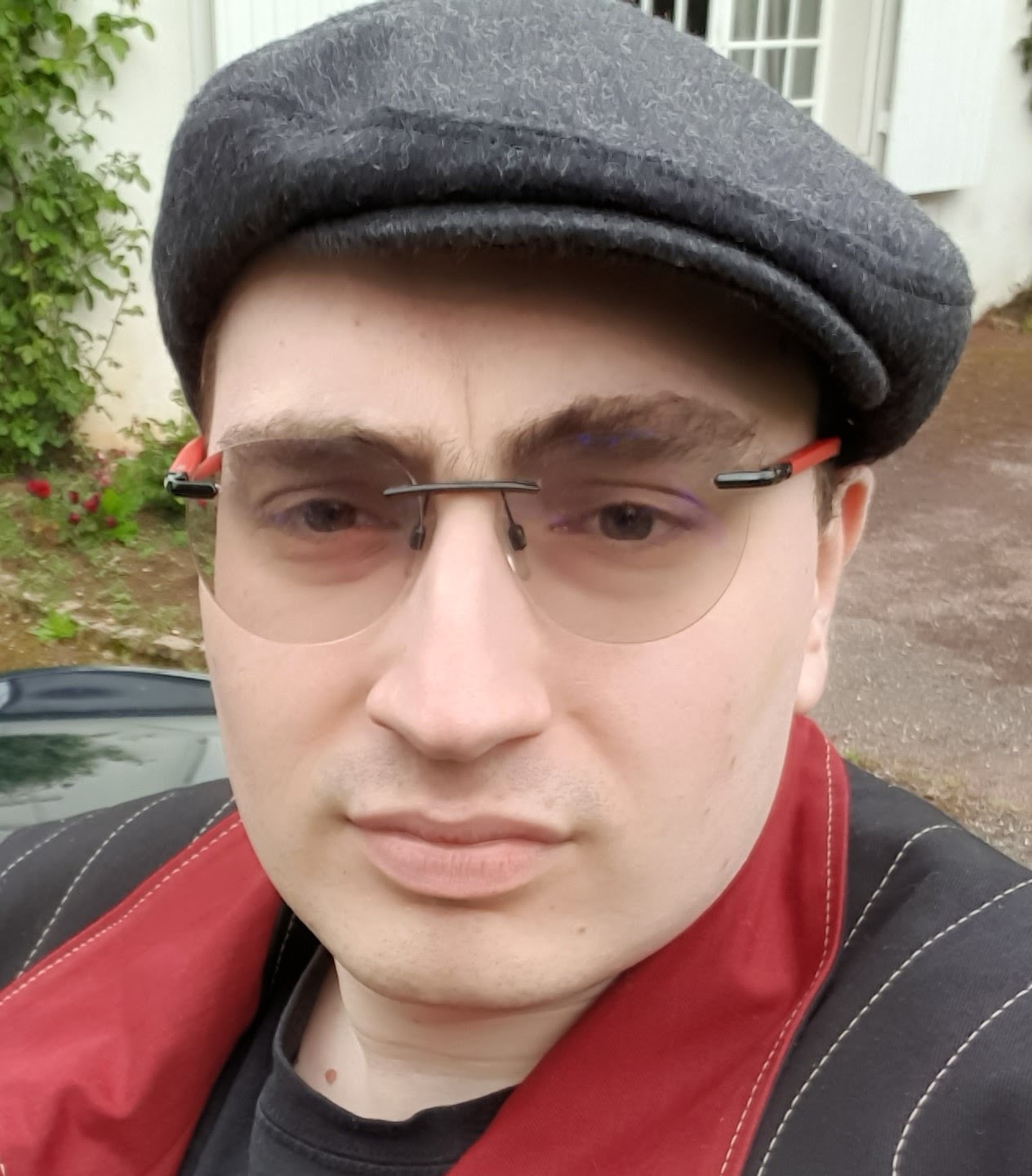
Thomas is a french, SRE at Indeed, Elixir developer for 7 years, OTP contributor, I have been working with the BEAM for years. I have been part of the EEF working group and contributed to the ecosystem at every level, from implementing BIF to Phoenix tool or maintaining erlang packages. I have a deep personal interest in system thinking and safety science.
Why vote for him?
The sustainability and future of the ecosystem are my main concerns. I believe that making the ecosystem more accessible to newcomers and easier to maintain is an important area to target for this. My experience in building and maintaining tools in the BEAM ecosystem and the OTP codebase itself has shown me that there is a lot of progress that could happen there. I am particularly attentive to the newcomers to the ecosystem thanks to my experience moderating the Elixir slack and answering countless questions there for nearly a decade. I think the EEF board would benefit from this approach and point of view.
Kiko Fernandez-Reyes
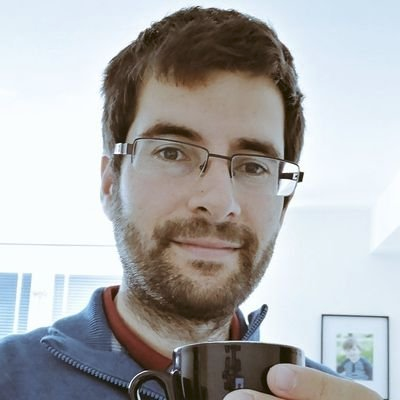
Kiko Fernandez-Reyes is member of the OTP team and holds a PhD in Computer Science by Uppsala University, Sweden. His main contributions were to actor-based languages with notions of futures and the integration of a gradual type system to an untyped concurrent language. His work has received multiple awards (2 Best Paper Awards and 2 Distinguished Artifact Awards) for the technical contributions, documentation, and source code (reproducibility). After his PhD, he worked at Klarna writing services in Haskell and Erlang, and he also was part of the board of the (Typed) Functional community in Klarna. Later on, he moved to Ericsson and tries to improve OTP little by little.
Kiko has previous volunteer experience that may be useful, if elected. Kiko has experience as co-chair, programmer committee, artifact reviewer, publicity chair, and student co-chair of actor-based conferences and workshops (Erlang Code BEAM Lite STO’23, Erlang 2023, Erlang’22, Onwards’22, ICCQ’21, ECCOP’20, DisCoTec’19-‘20, AGERE’19, SPLASH’19). He has also experience promoting gender equality as vice-chair of Uppsala’s ACM-W student chapter (‘16-‘19) and supervising technical (source code and formal proofs) and documentation contributions as bachelor thesis supervisor, and in teaching as main teacher of a course in Uppsala University.
Why vote for him?
I have a mixed background between academia and industry. As part of the OTP team, I can act as a bridge between the OTP team and the EEF board as well as working groups. I have technical competence in many related areas, such as programmee committee of (BEAM) actor-based conferences, can help the board to understand complex stipend requests from academic circles, to attract academics to do research using Erlang, or even in supervising developers / working groups in technical topics thanks to his prior experience as bachelor supervisor and as main teacher back at Uppsala University. Lastly, I care a lot about documentation, and I think that Erlang documentation needs a bit more love.
Alistair Woodman
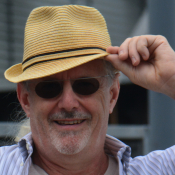
outgoing board member and president
Alistair has been working in the networking space since the 1980s. Product management jobs at Apple and Cisc kept him busy for over 20 years. For the last 10+ years he has been an angel investor, startup entrepreneur, as well as providing business and community development support for several open-source projects. His relationship with the BEAM community started over 15 years after getting to know the team and the technology at Tail-f. He is a board member of the Erlang Ecosystem Foundation and NetDEF.org.
Why vote for him?
I’m happy to help the community. I enjoy working with my board colleagues. I have connections to many open source projects and standards bodies and I have experience with not-for-profit as well as for-profit companies; their boards; and the process and bureaucracy associated with running such companies – basically, “I know how to wash the bottles and take the empties out.”
Sebastian Strollo
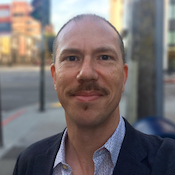
outgoing board member and secretary and treasurer
Sebastian Strollo has been an Erlang programmer since 1991, when he was introduced to the language by its authors at the Ericsson Computer Science Laboratory. Intrigued by the language and the lab, he stayed on, seeing Erlang through internal Ericsson use, and then being part of making it open source in 1998. He has since been part of several successful Erlang startups, most recently Tail-f Systems, which was acquired by Cisco in 2014. Currently, Sebastian is a co-founder and developer at a new startup called Avassa, where Erlang is being leveraged to bring the cloud experience to the edge.
Why vote for him?
I currently hold the roles of secretary and treasurer in the foundation. In this all-volunteer capacity, I ensure that we follow our bylaws, write minutes of board meetings, and maintain records. I also manage the bookkeeping of the foundation. Additionally, I participate in the sponsorship working group. I view my role on the board of EEF as someone who keeps the mechanics of the foundation running as smoothly as possible, allowing our members and working groups to flourish. During my current term on the board, I was part of successfully obtaining EEF’s 501(c)(3) (US non-profit) status and established routines for granting stipends and acquiring new sponsors to get EEF off the ground. If re-elected, I will focus on professionalizing the foundation’s day-to-day routines to allow our members and working groups to focus on growing our community and doing valuable work. Thank you for being a member of EEF, and I hope you will let me serve on the board for another term.
Amos King
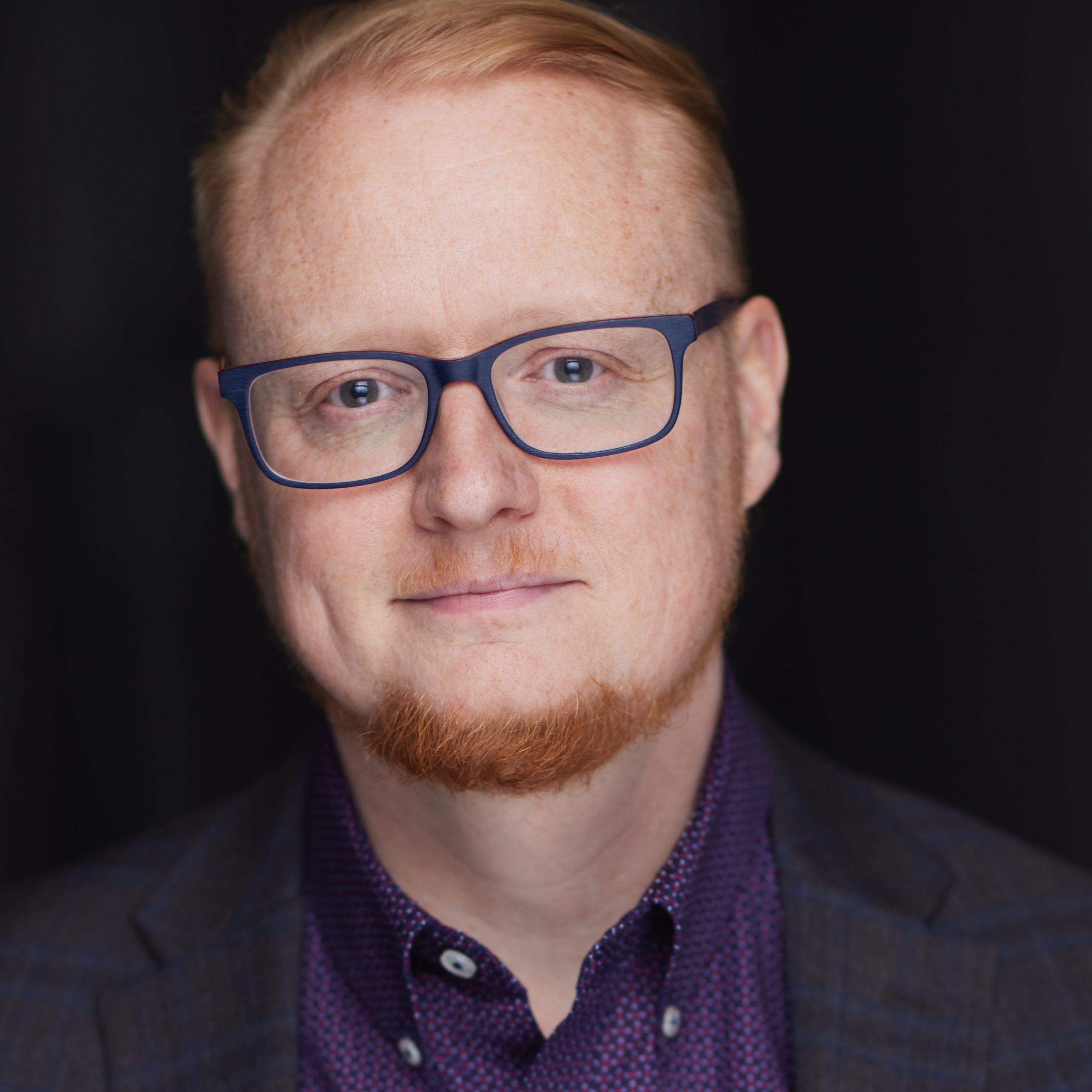
Amos is the founder of Binary Noggin, sponsor of EEF, and many conferences in the ecosystem. Amos is also the host of Elixir Outlaws, where he tries to ensure that the community is open and fun for all. Amos has been a member of EEF since 2019 and is part of the marketing workgroup. Amos frequently speaks at conferences like GigCity Elixir, Lonestar Elixir, ElixirConf, and CodeBEAM. In his free time, he’s active in the Elixir community as a mentor, meetup organizer, and book reviewer. Amos loves the BEAM and wants to help ensure its continued growth. Amos has also served on the programming committee for CodeBEAM multiple times. Amos has even driven hours to be in person at BEAM meetups.
Why vote for him?
I am interested in BEAM technologies’ growth and enjoy working with others. I am both a developer and proprietor of a company. This experience puts me in a position to understand the technical aspects of the BEAM and the business aspects of ensuring its continued growth. As a consultant, I have the perspective of many companies in mind that can help promote and push the BEAM in directions that are needed by all. The EEF would benefit from my love of working with others and my connections outside the BEAM community.
Francesco Cesarini
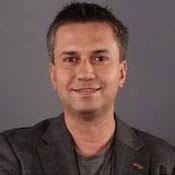
outgoing board member
Francesco has worked with Erlang since 1995, witnessing the transformation of the language into an ecosystem of languages. He was an intern at Ericsson’s computer science laboratory under Joe Armstrong, moving on to Ericsson’s Erlang training and consulting arm where he worked on the first release of OTP, applying it to turnkey solutions and flagship telecom applications. In 1999, soon after Erlang was released as open source, he founded Erlang Solutions, whose mission is helping companies with the adoption of Erlang and Elixir.
Francesco is the co-author of ‘Erlang Programming’ and ‘Designing for Scalability with Erlang/OTP’ both published by O’Reilly, a contributor to scientific papers and a senior lecturer at the University of Oxford. He has participated in the Future Learn Erlang MOOC, O’Reilly and University of Kent online Master Classes alongside being a regular speaker and tutor at conferences worldwide.
Why vote for him?
I live and breathe anything related to the Erlang ecosystem and the community around it. The community said that a lack of books hindered adoption? I encouraged friends to become authors and ended up writing two books myself. That Erlang was not taught in Universities? I started teaching myself, encouraging other lecturers to do the same. The community said there were not enough events? I started the Erlang Factory, took over the Erlang User Conference from Ericsson, all of which became Code BEAM Europe. And we help Jim run Elixir Conf EU.
My passion for Erlang and Elixir translates into a clear vision and encouragement for others to accelerate a joint work not only around the Erlang Ecosystem Foundation, but also around people’s individual journeys embarking on functional programming. Working with Erlang for almost three decades, I have become resilient to all challenges when elevating the ecosystem to get the right traction, recognition and adoption we all know it deserves!
The EEF started with me and Erlang co-inventor Mike Williams, when through the IEUG, we brought together a group of people and companies with an aim to achieve the momentum needed to start a foundation. It has not been easy, but I am proud we’ve pulled it off! My contributions as a board member have been focused around my network, leading the Fellowship and Sponsorship work groups and helping other members acting as a facilitator and sounding board. Where needed, I have been using conferences, events and other infrastructure and resources to help the foundation in whatever way possible, be it a speaker slot, marketing resources or paid time to members employed by us wanting to contribute.
But as others have pointed out, it is not just about me. The foundation would not be where it is thanks to the joint effort and enthusiasm of all the board members (and IEUG members before that) who are doing what they believe is the best for the future of Erlang, Elixir and the ecosystem as a whole. I wish you could vote not for a person, but for a team who has been working well together, leveraging each other’s strengths!